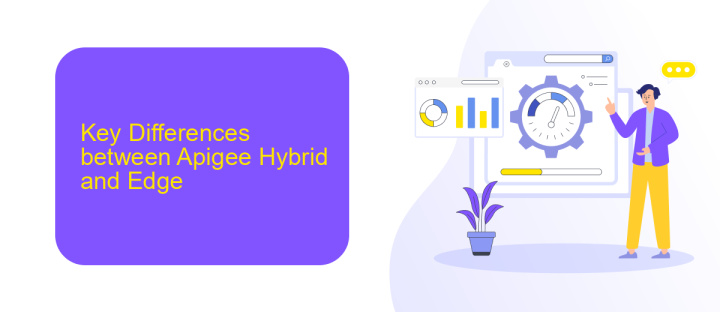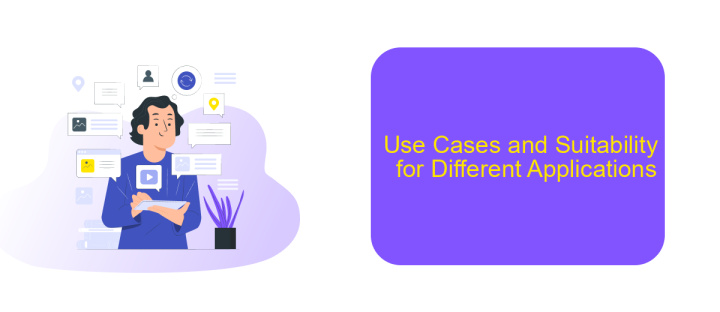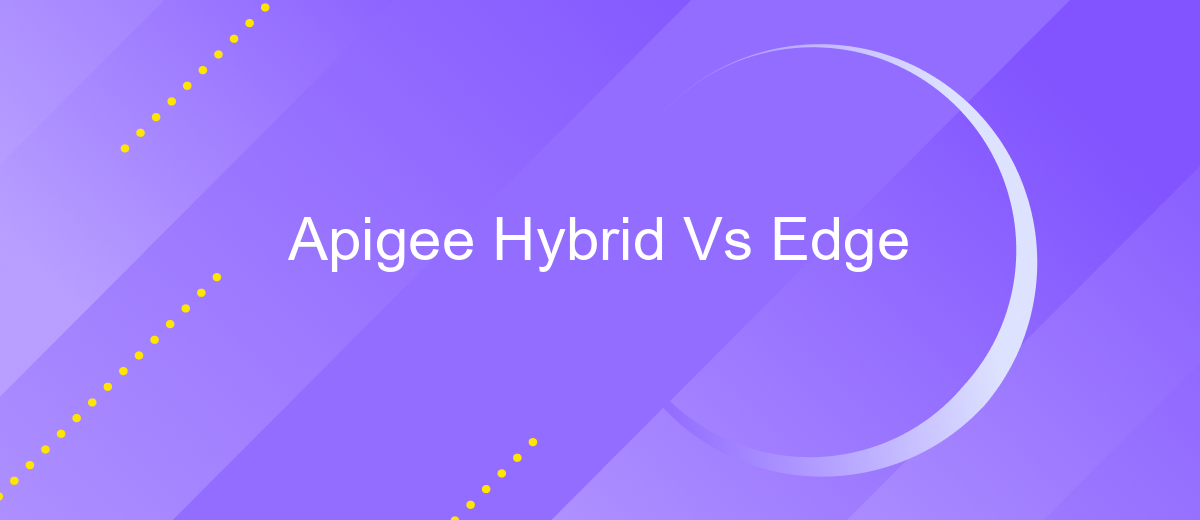Apigee Hybrid Vs Edge
In the rapidly evolving landscape of API management, choosing the right platform is crucial for businesses striving for efficiency and scalability. This article delves into a comparative analysis of Apigee Hybrid and Apigee Edge, exploring their key features, benefits, and differences. By understanding these two powerful solutions, organizations can make informed decisions to optimize their API strategies and drive digital transformation.
Introduction to Apigee Hybrid and Edge
Apigee Hybrid and Apigee Edge are two powerful API management platforms offered by Google Cloud. Both solutions provide robust tools for designing, securing, deploying, and monitoring APIs, but they cater to different deployment needs and environments. Apigee Hybrid allows for a flexible deployment model, enabling organizations to run their API management either on-premises, on Google Cloud, or in a hybrid environment. On the other hand, Apigee Edge is a fully managed cloud-based solution that simplifies API management with its extensive features and ease of use.
- Deployment Flexibility: Apigee Hybrid supports on-premises, cloud, and hybrid deployments, while Apigee Edge is cloud-native.
- Management: Apigee Hybrid offers centralized management for hybrid environments, whereas Apigee Edge provides comprehensive cloud management tools.
- Scalability: Both platforms are designed to scale, but Apigee Hybrid offers more control over scaling in hybrid setups.
- Integration: Apigee Edge integrates seamlessly with other Google Cloud services, while Apigee Hybrid can integrate with both cloud and on-premises systems.
Choosing between Apigee Hybrid and Apigee Edge depends on your organization's specific needs and infrastructure. If you require a flexible deployment model with on-premises control, Apigee Hybrid is the ideal choice. However, for those looking for a fully managed, cloud-native solution, Apigee Edge offers a streamlined and efficient approach to API management. Additionally, services like ApiX-Drive can further enhance your integration capabilities, providing seamless connections between various applications and systems.
Key Differences between Apigee Hybrid and Edge

Apigee Hybrid and Apigee Edge are both robust API management platforms, but they cater to different deployment needs. Apigee Hybrid allows you to manage APIs across both on-premises and cloud environments, offering greater flexibility and control over data residency and compliance. In contrast, Apigee Edge is a cloud-based solution that provides a fully managed service, ideal for organizations looking to leverage the scalability and ease of cloud infrastructure without the need for extensive on-premises resources.
Another key difference lies in their integration capabilities. Apigee Hybrid supports more complex and hybrid integrations, making it suitable for enterprises with diverse IT landscapes. On the other hand, Apigee Edge excels in its seamless cloud integrations, simplifying the process of connecting various cloud services. For businesses needing to streamline their integrations further, services like ApiX-Drive can be highly beneficial. ApiX-Drive offers automated workflows and integrations across multiple platforms, enhancing the functionality of both Apigee Hybrid and Edge by reducing manual intervention and increasing efficiency.
Comparison of Features and Functionality

When comparing Apigee Hybrid and Apigee Edge, it's essential to consider the unique features and functionalities each offers. Apigee Hybrid provides a flexible deployment model, allowing businesses to run their API management either on-premises, in the cloud, or a hybrid of both. This flexibility is crucial for organizations with specific compliance or latency requirements.
- Deployment Flexibility: Apigee Hybrid allows for on-premises, cloud, or hybrid deployment, whereas Apigee Edge is primarily cloud-based.
- Security: Both platforms offer robust security features, but Apigee Hybrid can meet more stringent on-premises security requirements.
- Scalability: Apigee Edge excels in cloud scalability, while Apigee Hybrid offers customizable scalability options.
- Integration: Both platforms support extensive integration capabilities. For instance, ApiX-Drive can be used to streamline and automate integration processes across various services.
- Management: Apigee Edge provides a unified cloud-based management interface, whereas Apigee Hybrid offers a more distributed management approach.
In summary, Apigee Hybrid is ideal for organizations needing flexible deployment and stringent security, while Apigee Edge is better suited for those prioritizing cloud scalability and unified management. Both platforms support comprehensive integration capabilities, making them versatile choices for diverse business needs.
Use Cases and Suitability for Different Applications

Apigee Hybrid and Apigee Edge serve different purposes and are suitable for various application scenarios. Apigee Hybrid is ideal for organizations that require a hybrid deployment model, allowing them to run their API management platform both on-premises and in the cloud. This flexibility is particularly beneficial for industries with strict regulatory requirements or those in the process of transitioning to cloud-native architectures.
On the other hand, Apigee Edge is a fully managed cloud solution, perfect for businesses that prioritize ease of use and quick deployment. It is suitable for companies looking to leverage a robust API management platform without the overhead of managing infrastructure. Edge is often chosen by startups and smaller enterprises that need to scale rapidly without investing heavily in on-premises resources.
- Apigee Hybrid: Suitable for hybrid deployment, regulatory compliance, and cloud transition.
- Apigee Edge: Ideal for fully managed cloud solutions, rapid scaling, and minimal infrastructure management.
For businesses focusing on seamless integration between various applications and services, tools like ApiX-Drive can complement both Apigee Hybrid and Edge by automating and streamlining API integrations. This ensures that data flows efficiently across different platforms, enhancing overall operational efficiency.
Conclusion
In conclusion, both Apigee Hybrid and Apigee Edge offer robust API management solutions, each with its own set of strengths tailored to different organizational needs. Apigee Hybrid provides the flexibility of a hybrid deployment model, allowing businesses to manage APIs both on-premises and in the cloud, which can be particularly beneficial for organizations with stringent data residency requirements. On the other hand, Apigee Edge excels in providing a fully managed cloud-based solution, ideal for enterprises looking to leverage the scalability and convenience of the cloud without the need to manage infrastructure.
For organizations seeking to streamline their API integrations further, services like ApiX-Drive can be invaluable. ApiX-Drive simplifies the process of connecting various applications and automating workflows, enhancing the overall efficiency of API management. Whether you choose Apigee Hybrid or Edge, integrating with a service like ApiX-Drive can help optimize your API strategy, ensuring seamless and efficient operations. Ultimately, the choice between Apigee Hybrid and Edge should be guided by your specific business requirements, infrastructure preferences, and long-term strategic goals.


FAQ
What is the primary difference between Apigee Hybrid and Apigee Edge?
Can I migrate from Apigee Edge to Apigee Hybrid?
What are the benefits of using Apigee Hybrid over Apigee Edge?
Is there a difference in pricing between Apigee Hybrid and Apigee Edge?
How can I automate and integrate Apigee with other services?
Strive to take your business to the next level, achieve your goals faster and more efficiently? Apix-Drive is your reliable assistant for these tasks. An online service and application connector will help you automate key business processes and get rid of the routine. You and your employees will free up time for important core tasks. Try Apix-Drive features for free to see the effectiveness of the online connector for yourself.

